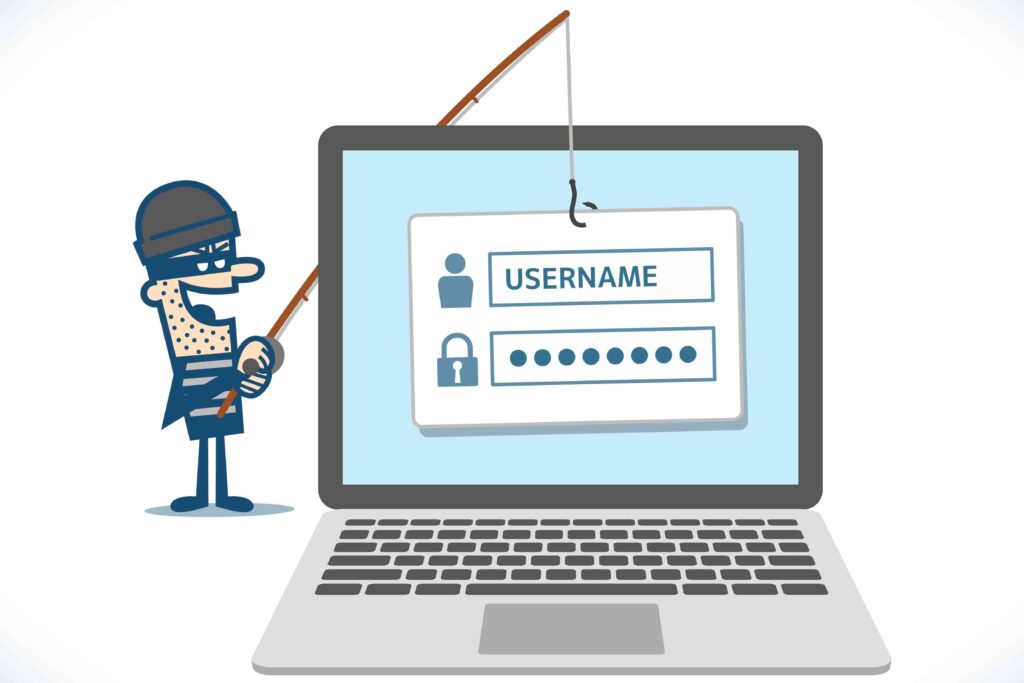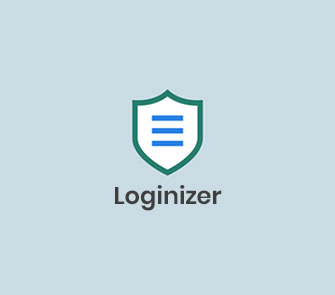Table of Contents

Introduction
WordPress Loginizer, is the most popular content management system (CMS) in the world, and with its popularity comes the risk of cyber attacks. Hackers are always looking for ways to gain unauthorized access to websites, and one of the most common methods is brute force attacks. To prevent such attacks, you need to secure your login page, and the WordPress Loginizer plugin can help you do just that. In this article, we’ll explore the benefits of using WordPress Loginizer for your website security.
- Protection Against Brute Force Attacks
Brute force attacks are a common method used by hackers to gain access to websites. They work by attempting to guess a user’s login credentials by using a list of common usernames and passwords. This can be a time-consuming process, but with enough attempts, the hacker can eventually gain access to your site. The Loginizer plugin protects your site against brute force attacks by limiting the number of login attempts allowed, and by temporarily blocking IP addresses that make too many failed attempts.
- Customizable Login Page
The Loginizer plugin allows you to customize your login page to fit your brand and make it harder for hackers to access your site. You can add a custom logo, change the background image, and even add a custom message to your login page. This can help to create a professional image for your site and also make it harder for hackers to target your login page.
- Two-Factor Authentication
Two-factor authentication (2FA) is a security feature that requires users to provide two forms of identification to access their account. This can be a password and a one-time code sent to their phone or email, or a fingerprint and a password. The Loginizer plugin provides two-factor authentication support, which can greatly improve your website’s security.
- Notification Alerts
The Loginizer plugin provides notification alerts for failed login attempts and other security-related events. You can set up email alerts for different events, such as when a user is locked out, or when someone tries to access your site with an invalid username or password. This can help you stay on top of your site’s security and take action if needed.
- Blacklist and Whitelist IP Addresses
The Loginizer plugin allows you to blacklist and whitelist IP addresses. This can be useful if you want to prevent access to your site from specific IP addresses or allow access only to certain IP addresses. You can also block IP ranges to prevent access from an entire region or country.
- Protection Against Dictionary Attacks
Dictionary attacks are similar to brute force attacks, but instead of using a list of common passwords, they use a list of dictionary words. This can be more effective than brute force attacks, as many users choose weak passwords that can be easily guessed. The Loginizer plugin provides protection against dictionary attacks by blocking the use of common dictionary words as passwords.
- Database Backup and Restoration
The Loginizer plugin also provides database backup and restoration options. This can be useful if your site is hacked, as you can easily restore your site to a previous version. The plugin also provides automatic backups, which can be scheduled to run at regular intervals.
- Protection Against Account Sharing
Sharing login credentials is a common practice, but it can also be a security risk. The Loginizer plugin provides protection against account sharing by blocking simultaneous logins from different IP addresses. This can prevent users from sharing their login credentials and also prevent hackers from gaining unauthorized access.
WordPress Loginizer History

WordPress is the most popular content management system (CMS) in the world, and with its popularity comes the risk of cyber attacks. Loginizer is a security plugin that was created to help WordPress users protect their websites from brute force attacks. In this article, we’ll explore the history of the Loginizer plugin and its evolution over time.
Loginizer Version 1.0
The first version of Loginizer was released in 2014. It was created by the developers at Softaculous, a company that specializes in software installation scripts. The initial version of the plugin was very basic, with limited features. It provided brute force protection by limiting the number of login attempts, and it also allowed users to block IP addresses.
Loginizer Version 2.0
In 2015, WordPress Loginizer was updated to version 2.0. This version of the plugin introduced several new features, including two-factor authentication, email notifications, and IP whitelisting. The two-factor authentication feature required users to provide two forms of identification to access their accounts, which greatly improved website security.
Loginizer Version 3.0
In 2016, WordPress Loginizer was updated to version 3.0. This version of the plugin added a new feature that allowed users to customize their login page. Users could add a custom logo, change the background image, and even add a custom message to their login page. This helped to create a more professional image for their website and also made it harder for hackers to target their login page.
Loginizer Version 4.0
In 2017, Loginizer was updated to version 4.0. This version of the plugin introduced several new features, including database backup and restoration, blacklist and whitelist IP addresses, and protection against dictionary attacks. The database backup and restoration feature allowed users to easily restore their site to a previous version if it was hacked. The blacklist and whitelist IP addresses feature was useful if users wanted to prevent access to their site from specific IP addresses or allow access only to certain IP addresses. The protection against dictionary attacks feature blocked the use of common dictionary words as passwords, which greatly improved website security.
Loginizer Version 5.0
In 2018, Loginizer was updated to version 5.0. This version of the plugin added a new feature that allowed users to block simultaneous logins from different IP addresses. This prevented users from sharing their login credentials and also prevented hackers from gaining unauthorized access to the site. The plugin also introduced new email notification options for failed login attempts and other security-related events.
Loginizer Version 6.0
In 2019, Loginizer was updated to version 6.0. This version of the plugin introduced a new feature that allowed users to customize the message displayed to users when they are locked out of their accounts. This improved the user experience and also made it easier for users to understand why they were locked out. The plugin also introduced new password policy options, which allowed users to set password strength requirements.
Loginizer Version 7.0
In 2020, Loginizer was updated to version 7.0. This version of the plugin added a new feature that allowed users to block login attempts from specific countries. This was useful for users who wanted to prevent access to their site from specific countries. The plugin also introduced new security options, which allowed users to block specific usernames and limit login attempts from a specific IP address range
Loginizer Version 8.0
In 2021, WordPress Loginizer was updated to version 8.0. This version of the plugin brought significant changes to the user interface and introduced several new features. The plugin added a new security dashboard, which provided users with an overview of the security of their site. The dashboard displayed information about recent login attempts, blocked IPs, and other security-related events. The new version also added support for PHP 8 and WordPress 5.7, ensuring compatibility with the latest versions of the platform.
In addition to the new dashboard, version 8.0 of WordPress Loginizer introduced several new security features. The plugin added support for Google reCAPTCHA v3, which is a more advanced version of the CAPTCHA system used to prevent automated spam and abuse on websites. Google reCAPTCHA v3 uses advanced algorithms to detect suspicious activity and block it before it can cause damage to a website. The new version of the plugin also introduced support for two-factor authentication via time-based one-time passwords (TOTP). This added an extra layer of security to user accounts and made it more difficult for hackers to gain unauthorized access.
WordPress Loginizer Benefits

Loginizer is a popular WordPress security plugin that helps protect your website against brute force attacks. Brute force attacks are a common way for hackers to gain access to a website by trying multiple username and password combinations until they find one that works. WordPress Loginizer can help prevent these types of attacks by limiting the number of login attempts from a single IP address.
Loginizer also offers a range of other security features, including two-factor authentication, IP blocking, and the ability to log failed login attempts. These features can help you better protect your website and give you greater visibility into potential security threats.
Now that we’ve covered what WordPress Loginizer is and how it can help protect your website, let’s take a closer look at some of its key benefits.
- Protects Your Website Against Brute Force Attacks
As we mentioned earlier, brute force attacks are a common way for hackers to gain access to a website. By limiting the number of login attempts from a single IP address, Loginizer can help prevent these types of attacks. This feature is especially important if you use a weak password or if you have users on your website who use weak passwords.
By default, Loginizer limits the number of login attempts to five. After five failed attempts, the user is locked out of the website for a period of time. You can adjust these settings to meet your specific needs and requirements.
- Offers Two-Factor Authentication
Two-factor authentication (2FA) is a security feature that requires users to enter a unique code in addition to their username and password when logging into your website. This additional layer of security can help prevent unauthorized access to your website even if a hacker has your username and password.
Loginizer offers two-factor authentication through the use of Google Authenticator or Authy. With these tools, users will be required to enter a unique code generated by the app in order to log in. This can help you better protect your website and prevent unauthorized access.
- Logs Failed Login Attempts
Loginizer also has a feature that logs failed login attempts. This can be helpful in identifying potential security threats and taking action to prevent them. For example, if you see a large number of failed login attempts from a specific IP address, you can block that IP address or take other steps to prevent further attacks.
- Blocks IP Addresses
Loginizer also offers the ability to block IP addresses. This can be helpful if you notice suspicious activity from a specific IP address. By blocking the IP address, you can prevent further attacks from that location.
- Sends Email Notifications
Loginizer also offers email notifications for various security events, such as failed login attempts and successful logins. This can help you keep track of what’s happening on your website and quickly identify potential security threats.
- Easy to Use
One of the best things about WordPress Loginizer is that it’s very easy to use. The plugin is simple to install and configure, and it offers a user-friendly interface that makes it easy to manage your website’s security settings. Even if you’re not a security expert, you should be able to use WordPress Loginizer to enhance the security of your website.
Conclusion

Loginizer is a security plugin that has evolved significantly since its initial release in 2014. The plugin has added several new features over the years, including brute force protection, two-factor authentication, and customizable login pages. The latest version of the plugin, Loginizer 8.0, has introduced significant changes to the user interface and added support for new security features, such as Google reCAPTCHA v3 and TOTP. These changes have made Loginizer an essential tool for website security, and it is highly recommended for all WordPress users who are concerned about the security of their sites. With the constant evolution of Loginizer, we can expect even more advanced security features in the future.


